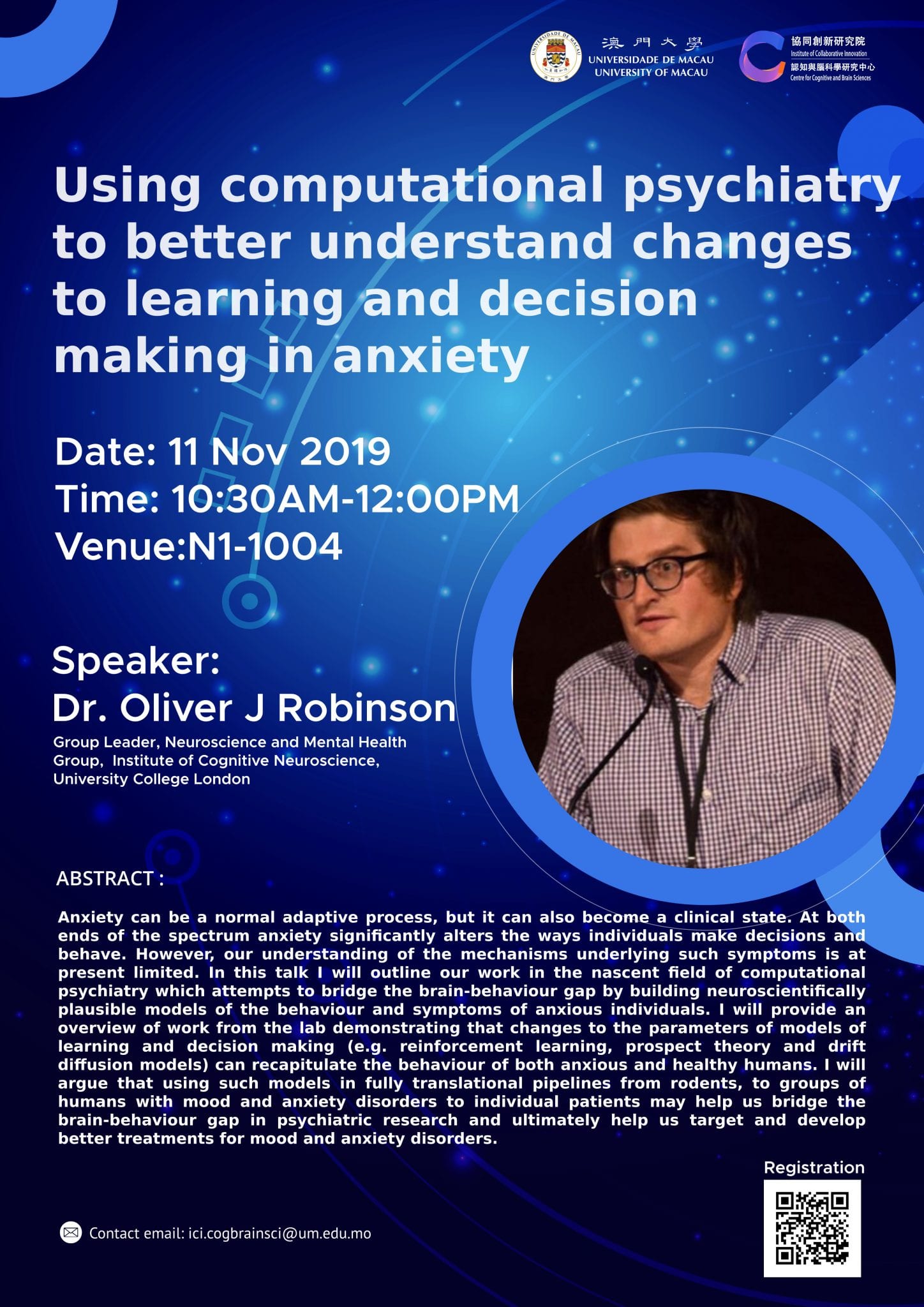
Anxiety can be a normal adaptive process, but it can also become a clinical state. At both ends of the spectrum anxiety significantly alters the ways individuals make decisions and behave. However, our understanding of the mechanisms underlying such symptoms is at present limited. In this talk I will outline our work in the nascent field of computational psychiatry which attempts to bridge the brain-behaviour gap by building neuroscientifically plausible models of the behaviour and symptoms of anxious individuals. I will provide an overview of work from the lab demonstrating that changes to the parameters of models of learning and decision making (e.g. reinforcement learning, prospect theory and drift diffusion models) can recapitulate the behaviour of both anxious and healthy humans. I will argue that using such models in fully translational pipelines from rodents, to groups of humans with mood and anxiety disorders to individual patients may help us bridge the brain-behaviour gap in psychiatric research and ultimately help us target and develop better treatments for mood and anxiety disorders.
We would like to extend an invitation to all of you to join us on this exciting event.
| Workshop: | Using computational psychiatry to better understand changes to learning and decision making in anxiety |
| Date: | 11 November 2019 (Monday) |
| Venue: | N1-1004 |
| Registration: | https://isw.umac.mo/evm/register/robinson |
For enquiry, please contact Ms. Ana Sou at tel: 8822 4600 or email: ici.cogbrainsci@um.edu.mo.


